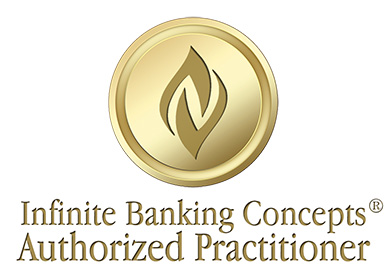- You are here:
- Home »
- Life Insurance
- » Family Banking 101

Family Banking 101
“A Family Bank is a strategy to keep wealth in your family and keep it growing…from generation to generation.”
– The Family Banking Book (forthcoming)
This strategy has been called “Family Banking,” “Private Family Banking,” the “Private Reserve Strategy,” “Infinite Banking,” “Insurance Banking,” and probably a half-dozen other names too.
By whatever name, what we mean by Family Banking is a method of using permanent, high cash value life insurance policies to build a multi-generational “bank.” This Family Bank grows and safeguards dollars while providing opportunities for family members to participate in growing and/or borrowing against the policies.
From the Family Business to the Family Bank
Once upon a time in a not-too-distant past, the family business was used to teach financial skills and success habits, help give heirs a “leg up” on a successful life without giving them a handout, and transfer wealth through business equity, assets, and know-how. However, as families have become more mobile and as career paths have become more fluid, the concept of the family business is, well, going out of business.
A November 5, 2013 article in the New York Times detailed why Family Banks are becoming the new family business. Like a family business, they provide opportunities to teach financial skills and transfer experience, wisdom and know-how. Best yet, Family Banks don’t require a business to implement, and they work with families of diversified interests and career paths, which seem to be most families nowadays!
While the exact reasons may be as different as families themselves, some common motivations are:
- Growth of assets.
Family Banks that use permanent life insurance aren’t simply a way to track, manage, loan and repay assets, they are also a safe and reliable growth strategy. And when compared with other safe storage solutions for cash, such as savings accounts, certificates of deposit, and money market funds, there is simply no comparison whatsoever.
- Unparalleled financial flexibility.
Oftentimes seniors with assets are hesitant, as well they should be, to use irrevocable trusts and other financial instruments that could limit their OWN use of and access to their own money… after all, who knows how long they will live? What sort of health they will enjoy? What kind of assistance they might need?
Financial flexibility is key and actually allows people to save more when they know that the money is not locked up in “money jail.” Permanent whole life can provide many of the advantages similar to trusts, but with greater flexibility and additional benefits.
- Create a source of lending for family members.
The most common uses for Family Banks include funding higher education, down payment for buying a house, and starting businesses. As policy loans do not have to fit within narrow bank or mortgage guidelines, constructive uses for policy loans are only limited by one’s imagination and the Family Bank’s approval process.
Family Banking allows for money to be put to USE, while also maintaining a level of CONTROL over the money. It is an excellent structure to teach children how to utilize money in a productive, responsible way, and to train them that “mom and dad” (or ATM machines) are not the source of all money.
- Permanent protection for all generations.
The structure of a Family Bank helps to ensure that every generation is adequately protected with life insurance, with no risk of losing that protection for reasons of health or insurability.
One of the advantages of a Family Bank is that oftentimes children are given a “head start” on their whole life policies by a parent or grandparent. This prevents a child from being turned down for reasons of insurability and also insures that a term price hike won’t put life insurance suddenly out of reach.
- Unparalleled estate planning benefits.
Families have used whole life insurance for generations to hold, grow and pass tax-free assets along to heirs. This should be no surprise, as life insurance was designed to do just that!
- Teaching valuable financial skills.
Helping your children learn the habit of saving (whether they are in 4th grade or whether they have families of their own) is perhaps the most important financial lesson one can teach their children and grandchildren!
There are other valuable financial skills that Family Bank participants learn, such as:
- Learning to talk about money.
- Observing the value of a long-term wealth strategy.
- Learning to apply for, obtain, and payoff loans according to established Family Bank guidelines.
- Writing a business plan or doing investment analysis.
- Leaving a legacy of more than money.
Family Banks provide an opportunity to divert money from “involuntary charity” in the form of taxation and put it to use in ways that support the values and priorities that are important to your family. Family banks can be used for charitable donations, family projects and travel, and they can prove invaluable when true family emergencies strike.
But a Family Bank is much more than a financial strategy, asset, or method for passing assets generationally and providing funding… it is a compelling opportunity to pass along values, priorities, habits, stories, traditions, and more.
Family Bank Philosophy: A Tale of Two Fortunes
Instead of giving money to children and grandchildren, a Family Bank can loanmoney in ways that can increase their success and independence. Adult children can take on the role of stewards andproducers of family wealth, rather thanconsumers of it. This distinction is critical.
When railroad and shipping magnate Cornelius Vanderbilt died, he was the richest man in the United States by a good margin. Upon his death in 1877 his heirs inherited the largest fortune ever accumulated – reportedly greater than the sum of money held in the U.S. Treasury at the time.
However, his children and his grandchildren lived lavishly, building huge, extravagant mansions on New York City’s Fifth Avenue and elsewhere. Some consumed their fortunes completely.
In 1972, the 120 Vanderbilts gathered for a reunion at Vanderbilt University, named for their patriarch who had provided the school its initial $1 million endowment. According to Klepper and Gunther’s book, The Wealthy 100, there wasn’t a millionaire among them. The greatest fortune in American history had all but vanished in 95 years.
Contrast the Vanderbilt story with that of the Rothschild family.
In the late-18th and early 19th centuries, Mayer Amschel Rothschild established five family banks, in Frankfurt, London, Paris, Vienna, and Naples, and assigned one to each of his sons. His action put his family in the position of great wealth and influence and preserved his descendants’ power over their assets and affairs for generations. Although Mayer Amschel Rothschild passed away 200 years ago, the Rothschild dynasty remains of the wealthiest families in the world today.
One of the secrets to growing wealth is controlling wealth. Too many Americans let banks make money off of them – keeping the bankers wealthy – instead of building and utilizing a Family Bank that allows them to keep control of and protect their own wealth.
Family Banks also provide a structure for mentorship and guidance. Who cares more about the family’s money than those who have been contributing to it? They help guide and direct younger family members, and encourage family members to live up to certain standards.
The influence of a Family Bank goes far beyond finances. They can be causes for family reunions, instruments for charitable giving, and vehicles which carry the family values from generation to generation.
Popular posts




